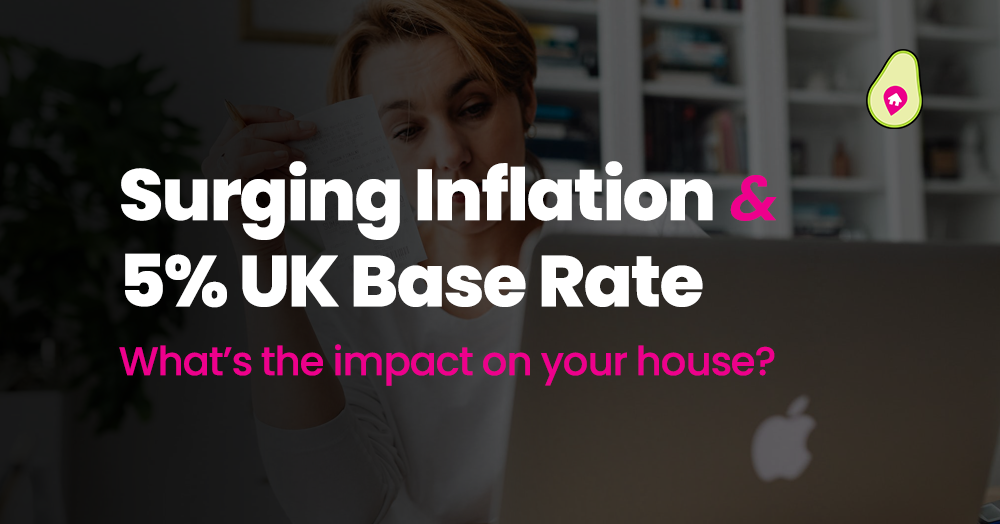Most people understand that inflation is an important economic indicator that measures the rate at which prices of goods and services rise over a period of time. In this article we explore the effects of high inflation on the economy and we dive into the impact of a UK base rate increase to 5% on the housing market in 2023.
Effects on Savers and Investors
High inflation has a detrimental impact on savers and investors. When inflation outpaces the interest earned on savings or investment returns, the real value of those funds diminishes. For instance, if inflation reaches 10% and savings earn a 3% interest rate, the purchasing power of those savings actually decreases by 7% in real terms. This discourages saving and investing, as individuals seek to protect their wealth from losing value.
Reduced Consumer Spending
High inflation often leads to a decline in consumer spending. As the cost of goods and services rises, individuals may cut back on discretionary purchases and focus on essential items. This decline in consumer spending can have a ripple effect on businesses, resulting in reduced revenues and potentially forcing them to reduce production or lay off workers. However, there are much less signs that people are stopping spending at the moment, and cost of food has been reported to have dropped again this week.
Income Redistribution
High inflation can also lead to income redistribution within society. As prices rise, individuals on fixed incomes or those with low wages may find it increasingly difficult to afford basic necessities. On the other hand, individuals who own assets that appreciate in value during inflationary periods, such as property or stocks, may experience a growth in their wealth. This disparity in wealth accumulation can exacerbate social and economic inequalities. We see a lot of negativity about this type of thing on social platforms these days…
Impact of a UK Base Rate Increase to 5%
The base rate, set by the Bank of England, influences interest rates and borrowing costs throughout the economy. With the UK base rate increased to 5% in response to high inflation, several consequences now follow:
- Cost of Borrowing: Higher interest rates increase the cost of borrowing for businesses and individuals. This can lead to a slowdown in borrowing and investment, as the cost of capital becomes more expensive. For businesses, this may translate into reduced expansion plans and job creation.
- Mortgage and Loan Repayments: Homeowners with variable-rate mortgages or individuals with outstanding loans would face higher monthly repayments. This increased financial burden could put pressure on household budgets and limit discretionary spending.
- Exchange Rate Impact: A higher base rate can attract foreign investors seeking higher returns. This increased demand for the country's currency can lead to a stronger exchange rate. While this benefits those who import goods, it can adversely affect exporters by making their products relatively more expensive in foreign markets.
- Inflation Control: Raising the base rate is a monetary policy tool used to control inflation. By increasing borrowing costs, it can help to reduce consumer spending and dampen demand-pull inflation. However, it can also have negative effects on economic growth and employment.
Each time the base rate goes up, the cost to a buyer will also go up and the result is that the price of your home will likely be slightly less. It might be the offer you would receive is less rather than the asking price. In the last month the rate in which mortgage rates have increased is not in line with the base rate .5% increase. Mortgage rate averages have increased by over 1% in most cases. So house pricing is key in the initial launch of a property, and marketing skill of the estate agent for sellers is equally key.
Demand in March, April & May was way higher than expected for 2023 and we have seen a slight drop off in June so far. Although demand is still stronger than 2019 by comparison.
